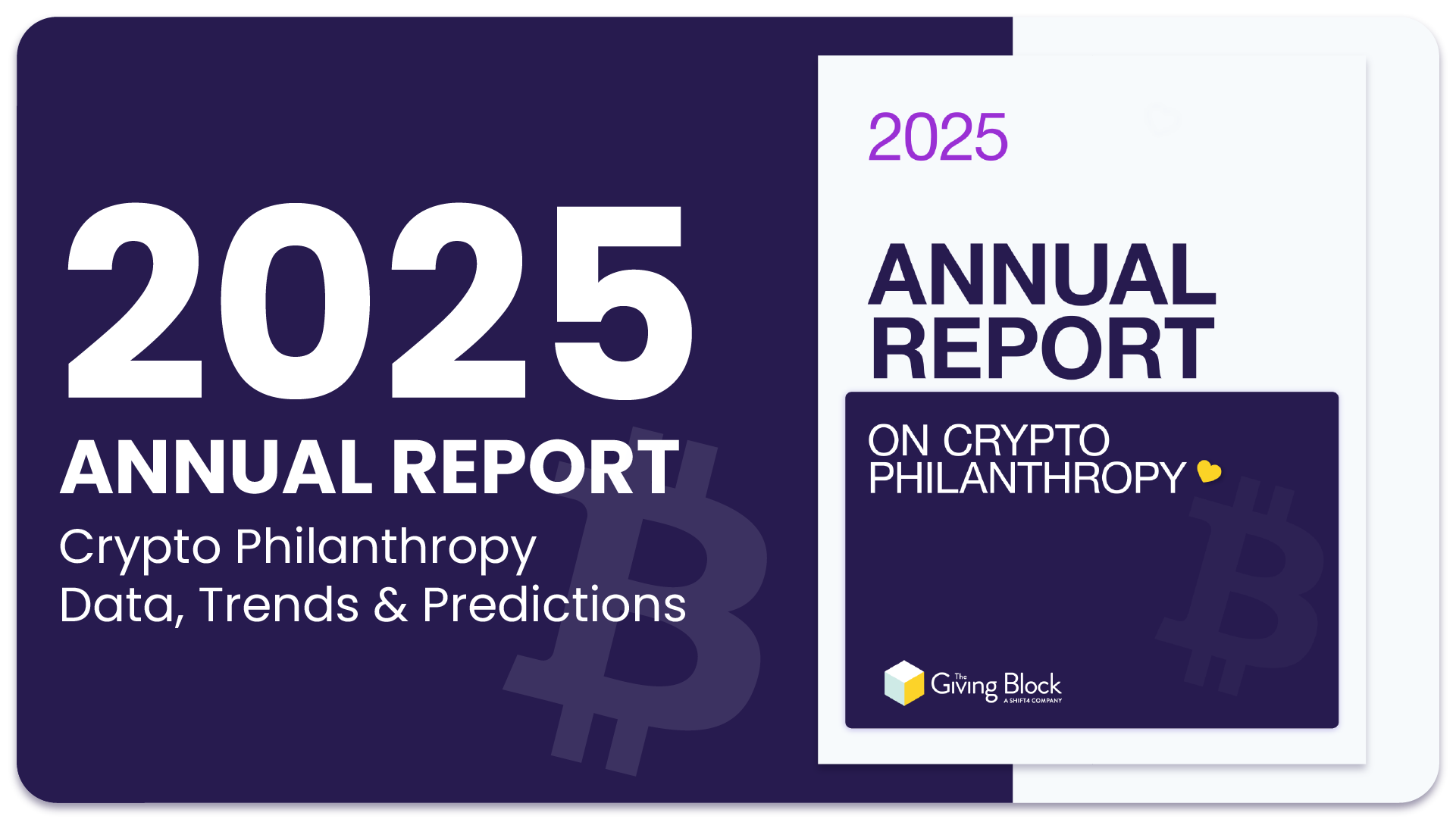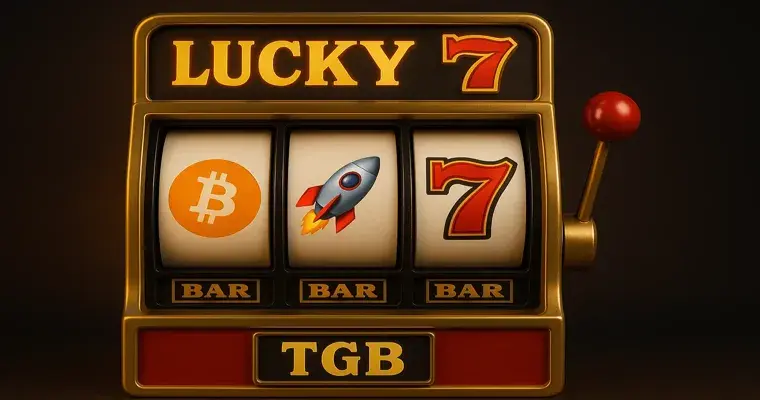Nonprofits play a larger role in our lives than many of us realize. The charitable sector’s success—in terms of mission fulfillment and fundraising—directly improves the quality of countless lives. As many nonprofits recover from revenue shortfalls as a result of the COVID-19 pandemic, they are looking for new ways to diversify their fundraising strategies, including Crypto Philanthropy.
Alex Wilson, Co-Founder of The Giving Block, recently delivered the keynote speech at the Los Angeles Business Journal’s 2022 Nonprofit & Corporate Citizenship Awards. During his remarks, Alex discussed some of the questions he receives most from nonprofits curious about accepting cryptocurrency donations.
Read on for the key takeaways, or listen to Alex’s entire speech below:
1. Why Did You Start The Giving Block?
Today, The Giving Block helps thousands of nonprofits accept cryptocurrency donations and is on a mission to turn crypto into one of the greatest forces for good. Here’s how it all began:
- “When my co-founder [Pat Duffy] and I started this business in 2018, we felt like nonprofits were kind of falling behind when it came to cutting edge technology or emerging technology. We felt that for a long time nonprofits were really being underserved when it came to technology, and that not enough entrepreneurs and founders were creating companies to serve nonprofits. We really were tired of seeing nonprofits being left behind, often being years behind when it came to new technology that the for-profit industry was using already.”
- “We thought that crypto donations would actually be one area where nonprofits could really lead and be early adopters and that was really part of the reason we decided to start The Giving Block. So we’re really hoping that this emergence of Crypto Philanthropy and this crypto boom is going to help nonprofits stay on the forefront of technology. Hopefully crypto is just the beginning for a lot of them, but this sort of opens them up to a whole new world of innovation.”
2. Who Actually Owns Cryptocurrency?
There are millions of crypto users around the world and that number is only predicted to grow. It turns out there are some common themes as to who’s behind owning and donating cryptocurrency:
- “The short answer is, it’s mostly younger people. It’s a lot of Millennials and Gen Z people that are storing a lot of their wealth in crypto. They prefer crypto over more traditional assets as well, so many younger people are investing in crypto instead of stocks and bonds. Nonprofits are usually shocked when we tell them that there’s over 300 million people using crypto globally now, which is more than the amount of PayPal users that exist—and quite a few non-profits of course have a PayPal donation method. Hundreds of millions of dollars are being donated in crypto now, and of course, this has been really appealing for nonprofits to hear that most of these donors are on the younger side.”
- “The other piece of this that people don’t realize is that 83% of millennial millionaires own cryptocurrency. Even crazier, more than half of millennials have at least 50% of their wealth in crypto and nearly a third have at least three quarters of their wealth in crypto. With donor demographics shifting and a lot of donors getting older, it’s more important than ever for nonprofits to start building these relationships with younger donors, and crypto is the asset class that they’re choosing to store their wealth.”
3. Why Would Crypto Users Donate Cryptocurrency to Nonprofits?
There are a variety of benefits to donating cryptocurrency, but here’s one of the main reasons why crypto users should be interested in charitable giving:
- “The really easy answer to that is simply taxes. The IRS has classified crypto as property, which means donating crypto is a lot like donating public equities or any sort of stock. It’s really tax-efficient. It hasn’t always been easy for people to donate stocks or other appreciated assets, but crypto has really been this perfect mix of being really easy to use and donate for the donor, and comes along with the same tax benefits of stock or other appreciated property donations.”
- “To give you a sense of what kind of tax efficiency there is: if [the donors] donate Bitcoin, they don’t have to pay capital gains tax that they otherwise would if they sold that crypto, and they get a fair market value deduction at the time that they make that donation. Of course, if they’re donating to a registered charity, the charity is tax-exempt as well, so the charity isn’t paying any taxes on either. So that means the charity is getting probably 25 to 30 percent more in terms of the donation dollars, and the donor isn’t paying capital gains taxes, and their write-off is going to be 25 to 30 percent higher as well, so it’s really an amazing win-win for both sides.”
- “It’s been really interesting to see that so many of these crypto donors are actually only donating in crypto once they realize there’s this tax benefit, because they don’t want to sell their crypto, pay 20 or 30 percent in taxes, and then not be able to donate as much. It just doesn’t make sense for them to donate cash if they have appreciated crypto, so that’s really one of these huge driving factors for this Crypto Philanthropy boom.”
4. How Did COVID-19 Accelerate the Nonprofit Adoption of Crypto Donations?
The COVID-19 pandemic forced many nonprofits to pivot overnight and seek new revenue sources. Cryptocurrency was the fundraising solution that some organizations discovered right when it was needed the most:
- “COVID changed a lot of things, and fundraising for nonprofits is very different now than it was even just a couple years ago. The rate of change (similar to the business world) has really accelerated, and nonprofits really need to keep up with that rate of change—especially when it comes to technology.”
- “With COVID, it really accelerated that change with nonprofits having to go digital. They had to scramble to think, ‘All right, how am I going to offset my lost revenue from the gala I had to cancel or from the golf tournament I canceled?’ All these physical things that were huge revenue drivers for a lot of nonprofits and they were turning to new digital revenue streams and thinking, ‘How can I diversify my revenue and how can I tap into new revenue streams?’ Ultimately and interestingly, crypto really stood out for a lot of nonprofits as this kind of technology transition. Plus, COVID created a really interesting dynamic where they were all racing to go digital with pretty much everything they did, and that included new forms of taking donations.”
- “Crypto stood out because it was sort of this perfect timing of the crypto markets also booming in 2020 especially, and the market grew incredibly, so there were a lot of people making a lot of money and therefore also donating quite a bit of crypto.”
- “Crypto certainly isn’t quite mainstream yet, but it’s come a long way in the last few years and COVID ended up being one of our biggest catalysts as a company, too. We started this company in 2018, but from 2020 to 2021, we went from working with a hundred nonprofits to over a thousand. Now, just a few months into the year, we work with roughly 1500 nonprofits and have raised over 100 million dollars in crypto donations for the nonprofits we work with in a relatively short period of time. So Crypto Philanthropy has really really been booming!”
Listen to the Entire Speech Here
Watch Alex Wilson’s full keynote speech at the Los Angeles Business Journal’s 2022 Nonprofit & Corporate Citizenship Awards:
Learn More About Cryptocurrency Fundraising for Nonprofits
Since 2018, The Giving Block has been at the forefront of this new sector of “Crypto Philanthropy.” We’ve helped 2,000 nonprofits accept crypto donations and become more connected with the crypto community.
To discover more about the benefits of cryptocurrency fundraising, sign up to attend The Giving Block’s monthly webinar for nonprofits, “Why Accepting Cryptocurrency Now is More Essential Than Ever.”




















